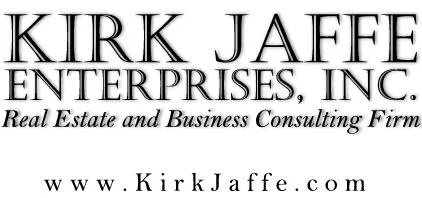CALL US TODAY: 775 415 - KIRK (5475)
Register for Our Next Live Webinar:
"The Momentum-Maker Mastermind: Mindset, Methods, & Metrics"
Join Kirk on April 12th @9:45 AM (Pacific Time)
GET FUNDED FAST FOR HOME AND BUSINESS!
Kirk Jaffe Enterprises, Inc. has funded thousands of companies just like yours. Contact Us today to Get Started!

Our Services
Kirk Jaffe Enterprises, Inc. has multiple services for home buyers and business owners.
Make us your preferred solution for home and commercial real estate.

MORTGAGE LENDING
We offer the most competitive rates and excellent service beyond closing. Guaranteed! PRO.
REAL ESTATE AND PROFESSIONAL CONSULTING
We offer guidance to real estate professionals, tax professionals, lawyers, and CPA's.
BUSINESS CONSULTING
Are you ready to grow your business to
the next level and beyond. Kirk has helped hundreds of businesses and
can help you get there faster.
INVESTMENT ASSISTANCE
Our proven track record in solid investments has help hundreds and could help you too. Ask us how!

FIND OUT WHY KIRK JAFFE IS THE BEST CHOICE FOR LOANS AND HELPING BUSINESSES GROW!
Kirk Jaffe, CEO/Founder – Executive Management of $200MM private investment fund including Mortgage Notes, Real Estate Owned (REO) and Commercial Property Holdings. He has overseen and held executive authority of over 20,000 real estate transactions in his 20-year real estate career including buying and selling of property, foreclosure, short sale, loan modification, rehabilitation of property with an aggregate over $1 Billion value. Kirk has also originated over $ 1 Billion of new Mortgages.
Kirk is the past President of the Universal City/North Hollywood Chamber of Commerce as well as a former co-chair of the ALFN Commercial Practices Committee. He is active as a speaker and moderator of several trade organizations including the CA Mortgage Bankers Association (CMBA), Mortgage Banking Association (MBA), and the Attorney Legal Financial Network (ALFN). Mr. Jaffe is quoted or has been a guest of several media outlets including: KABC790 Talk Radio, NBC and the Los Angeles Daily News to name a few.
Kirk Has Appeared On:
How Can We Help
You Today?


Start Quote

Change Plan

Contact
Let Us Know What You Need!
We custom fit every service to your personal business needs. Whatever it is, we have a solution. Just click the button below to get assistance today!
If you're looking for a firm who can help you with not just your mortgage, but help you GROW YOUR BUSINESS FAST... you're where you should be!
MORTGAGE LENDING
We offer Custom Tailored mortgages for Home or Business!
BUSINESS CONSULTING
Grow your business FAST with our Business Consulting Services!
INVESTMENT CONSULTING - REAL ESTATE ASSETS
Our win/win approach to investing has helped hundreds. FIND OUT MORE!
REAL ESTATE PROFESSIONALS
If you are a real estate professional and are ready to work with a partner with years of experience, you're in the right place.
CPAS, ATTORNEYS, AND INSURANCE PROFESSIONALS
If you have questions about the potential legal implications of real estate transactions for your clients, Kirk Jaffe has the answers!
GET STARTED TODAY
Getting started with Kirk Jaffe Enterprises is super easy. Find out how it works below!
WHAT OUR CLIENTS HAVE TO SAY

“What a GREAT guy Kirk is! I highly recommend him and his services all the time and for my own home loan needs. Why would I say that as a Broker myself? Well as a Buyer and a Broker I cannot have my hand into many aspects of the transaction, so I trust Kirk with my financing needs he has yet to let me down! "
Steve Duncan

"Kirk is my go-to lender. He has worked many “miracle situations” and provides top notch service from start to finish...."
Jeff J. Grice

"I have known Kirk Jaffe for many years. Kirk has a stellar reputation. You can see his reviews by going to www.mycity.com/profile/kirk-jaffe."
Bob Friedenthal

"When I need any information regarding the Real Estate Financing space for a client, my first call is to Kirk Jaffe. He is knowledgeable, professional, and experienced. He stays on top of cases and follows up with clients. He is a true asset to my business."
Bruce Fine

"Kirk works hard and well day and night, a kind person and gets it done fast!"
Melissa Oppenheimer

"Kirk did a fabulous job. He walked me thru the process and it was incredibly easy compared to other mortgages I've done. Thanks to Kirk, my house closed in under 21 days, and he got me a great interest rate."
CHARLIE JEWETT

WHY WORK WITH KIRK JAFFE ENTERPRISES, INC?
Because we offer the best service at affordable rates and will help your company grow faster! Click the button or
CALL US AT (775) 415 - KIRK (5475)

19 IRS Red Flags: What Are Your Chances of Being Audited?
These red flags could increase your chances of the IRS selecting your return for audit.
As you're getting ready to file your tax return, you may be wondering about the chances that the IRS will audit your return. Your fear might be heightened, knowing that the Inflation Reduction Act, enacted two years ago, gave the IRS $80 billion in extra funds over ten years, with a large chunk of that money to be used by the agency for increased enforcement activities. Congress has clawed back about $25 billion of that funding in last spring's debt limit deal.
Most people can still breathe easily, however, because the majority of individual returns escape the audit machine.
In recent years, the IRS has audited significantly less than 1% of all individual tax returns.
Plus, most audits are handled solely by mail, meaning taxpayers selected for an audit typically never actually meet with an IRS agent in person.
Also, increased audits won't happen overnight. It will take the IRS time to hire experienced examiners and to train them to audit complicated tax returns. Most of the enforcement effects from the IRS funding won't be felt by taxpayers for a couple of years.
But this doesn't mean it's a tax cheat free-for-all. The bad news is that your chances at the unenviable audit lottery escalate (sometimes significantly) depending on various factors, including the amount of income you report, the complexity of your return, the types and amounts of deductions or other tax breaks you claim, whether you're engaged in a business, or whether you own foreign assets. Math errors could also draw an extra look from the IRS, but they usually don't lead to a full-blown exam.
The same goes for errors with refundable tax credits, such as the earned income tax credit and the refundable portion of the child tax credit.
In the end, there's no sure way to predict an IRS audit, but these 19 audit red flags could increase your chances of drawing unwanted attention from the IRS.
1. Failing to report all taxable income
The IRS gets copies of all the 1099s and W-2s you receive, so be sure you report all required income on your return. IRS computers are pretty good at cross-checking the forms with the income shown on your return. A mismatch sends up a red flag and causes the IRS computers to spit out a bill that the IRS will mail to you (these letters don't count as audits for purposes of the IRS's audit rate). If you receive a 1099 showing income that isn't yours or listing incorrect income, get the issuer to file a correct form with the IRS.
Report all income sources on your 1040 return, whether or not you receive a form such as a 1099. For example, if you get paid for walking dogs, tutoring, driving for Uber or Lyft, giving piano lessons, or selling crafts through Etsy, the money you receive is taxable.
2. Making a lot of money
While the overall individual audit rates are extremely low, the odds increase significantly as your income goes up (especially if you have business income). Remember, the IRS is getting more money for audits, with a significant chunk of its extra funding over 10 years dedicated to enforcement activities and collection measures.
The Treasury Department and the IRS say that some enforcement funds will be used to audit more high-net-worth individuals and pass-through entities, such as LLCs and partnerships, among other taxpayers. Treasury officials have made a big promise, saying that taxpayers earning under $400,000 won't see increased audit rates relative to recent years. The IRS will be hard-pressed to keep this promise, but it's too soon to know for sure.
The IRS's high-wealth exam squad is even getting back into the action. This specialized group within the IRS tackles examinations of the super-rich. Revenue agents take a kitchen-sink approach in auditing these individuals by reviewing not only their 1040 returns, but also returns of entities they control, both foreign and domestic.
We're not saying you should try to make less money — everyone wants to be a millionaire. You just need to understand that the more income shown on your return, the more likely it is that the IRS will be knocking on your door.
3. Non-Filers
The IRS hasn't always been diligent in pursuing individuals who don't file required tax returns. In fact, the agency has been chastised by Treasury inspectors and lawmakers on its years-long lack of enforcement activity in this area. So, it shouldn't come as a surprise that high-income non-filers now top the list of IRS's strategic enforcement priorities.
The primary emphasis is on individuals who received income in excess of $100,000 but didn't file a return. Collections officers will contact taxpayers and work with them to help resolve the issue and bring them into compliance. People who refuse to comply can be subject to levies, liens or even criminal charges.
4. Taking higher-than-average deductions, losses or credits
If the deductions, losses, or credits on your return are disproportionately large compared with your income, the IRS may want to take a second look at your return. Taking a big loss from the sale of rental property or other investments can also spike the IRS's curiosity. Ditto for bad debt deductions or worthless stock.
But if you have the proper documentation for your deduction, loss or credit, don't be afraid to claim it. Don't ever feel like you have to pay the IRS more tax than you actually owe.
5. Taking large charitable deductions
We all know that charitable contributions are a great write-off and help you feel all warm and fuzzy inside. However, if your charitable deductions are disproportionately large compared with your income, it raises a red flag.
That's because the IRS knows what the average charitable donation is for folks at your income level. Also, if you don't get an appraisal for donations of valuable property, or if you fail to file IRS Form 8283 for noncash donations over $500, you become an even bigger audit target. And if you've donated a conservation or façade easement to charity, or if you are an investor in a partnership, LLC or trust that made such a donation, your chances of hearing from the IRS rise exponentially. Battling abusive syndicated conservation easement deals is a strategic enforcement priority of the tax agency. Congress has even recently stepped in to disallow charitable deductions in the most egregious conservation easement cases.
6. Running a business
Schedule C is a treasure trove of tax deductions for self-employed people. But it's also a gold mine for IRS agents, who know from experience that self-employed people sometimes claim excessive deductions and don't report all their income. The IRS looks at both higher-grossing sole proprietorships and smaller ones.
Sole proprietors reporting at least $100,000 of gross receipts on Schedule C and cash-intensive businesses (taxis, car washes, bars, hair salons, restaurants and the like) have a higher audit risk. Ditto for business owners who report substantial losses on Schedule C, especially if those losses can offset in whole or in part other income reported on the return, such as wages or investment income.
Also, claiming 100% business use of a vehicle is a prime audit red flag. IRS agents know that it's rare for someone to actually use a vehicle 100% of the time for business, especially if no other vehicle is available for personal use. The IRS also targets heavy SUVs and large trucks used for business, especially those bought late in the year. That's because these vehicles are eligible for more favorable depreciation and expensing write-offs. Be sure you keep detailed mileage logs and precise calendar entries for the purpose of every road trip. Sloppy recordkeeping makes it easy for a revenue agent to disallow your deduction.
7. Writing off a hobby loss
Sorry to inform you, but you're a prime audit target if you report multiple years of losses on Schedule C of the Form 1040, run an activity that sounds like a hobby and have lots of income from other sources. The IRS is on the hunt for taxpayers who year after year report large losses from hobby-sounding activities to help offset other income, such as wages, or business or investment earnings. The hobby loss rules are often litigated in the Tax Court. The IRS usually wins in court, partly because it tends to settle cases in which it doesn't believe it can prevail. But taxpayers have also pulled out a victory in a number of court cases.
To be eligible to deduct a loss, you must be running the hobby in a business-like manner and have a reasonable expectation of making a profit. If your activity generates profit three out of every five years (or two out of seven years for horse breeding), the law presumes that you're in business to make a profit, unless the IRS establishes otherwise. The analysis is trickier if you can't meet these safe harbors. That's because the determination of whether an activity is properly categorized as a hobby or a business is then based on each taxpayer's facts and circumstances. If you're audited, the IRS is going to make you prove you have a legitimate business and not a hobby.
8. Failing to report certain professional earnings as self-employment income
Some limited partners and LLC members who don't file Schedule SE or pay self-employment tax are on the IRS's radar. The agency has an ongoing audit campaign involving the issue of when limited partners and LLC members in professional service industries owe self-employment tax on their distributive share of the firm's income.
In 2017, the Tax Court ruled that members of a law firm organized as a limited liability company and who actively participated in the LLC's operations and in management weren't mere investors and were liable for self-employment taxes. And just last year, the Tax Court decided that limited partners who actively participate in a limited partnership could owe self-employment tax. That case involved a hedge fund. LLC and LP owners in law, medicine, consulting, accounting, architecture and other professional service sectors are being eyed by IRS examiners, who have been conducting audits over the past few years.
9. Claiming rental losses
The passive loss rules usually prevent the deduction of rental real estate losses, but there are two important exceptions. First, if you actively participate in the renting of your property, you can deduct up to $25,000 of loss against your other income. This $25,000 allowance phases out as adjusted gross income exceeds $100,000 and disappears entirely once your AGI reaches $150,000. A second exception applies to real estate professionals who spend more than 50% of their working hours and over 750 hours each year materially participating in real estate as developers, brokers, landlords or the like. They can write off rental losses.
The IRS actively scrutinizes large rental real estate losses, especially those written off by taxpayers claiming to be real estate pros. It's pulling returns of individuals who claim they are real estate professionals and whose W-2 forms or other non-real-estate Schedule C businesses show lots of income. Agents are checking to see whether these filers worked the necessary hours, especially in cases of landlords whose day jobs are not in the real estate business.
10. Claiming the American Opportunity Tax Credit
College is expensive, and the tax law gives individuals some tax breaks to help with the cost. One of these is the American Opportunity Tax Credit. The AOTC is worth up to $2,500 per student for each of the first four years of college. It's based on 100% of the first $2,000 spent on qualifying college expenses and 25% of the next $2,000. And 40% of the credit is refundable, meaning you get it even if you don't owe any tax. This tax saver begins to phase out for joint-return filers with modified adjusted gross incomes above $160,000 ($80,000 for single filers). The student must be in school at least half-time. Eligible expenses include tuition, books and required fees, but not room and board.
The IRS is ramping up its efforts in enforcing the AOTC. Among the problem areas it is focusing on: Taking the credit for more than four years for the same student, omitting the school's taxpayer ID number on Form 8863 (the document used to claim the AOTC), taking the credit without receiving Form 1098-T from the school, and claiming multiple tax breaks for the same college expenses.
11. Incorrectly reporting the Health Premium Tax Credit
The premium tax credit, which is over 10 years old, helps individuals pay for health insurance they buy through the marketplace. Prior to 2021, the credit was available for people with household incomes ranging from 100% to 400% of the federal poverty level. For 2021 through 2025, some people with incomes over 400% of the poverty level can also get credits, depending on the cost of the policy. Individuals who are eligible for Medicare, Medicaid or other federal insurance do not qualify. Nor do people who are able to get affordable health coverage through their employer.
The credit is estimated when you go on a marketplace website such as healthcare.gov to buy insurance. You can choose to have the credit paid in advance directly to the health insurance company to lower your monthly payments. You then generally have to attach IRS Form 8962 to your tax return to compute your actual credit, list any advance subsidy paid to the insurer and then reconcile the two figures. If your credit exceeds the premium advances, you can claim the excess on your Form 1040. If the credit is less than the advances, most people will need to repay all or part of the excess.
Erroneous reporting of the health premium credit is an audit red flag. The IRS’s computers flag returns showing incomes above the limit to take the credit. The IRS is also on the prowl for people who elected to have their subsidy paid directly to the insurance company but did not file an income tax return to reconcile the advances with the actual credit.
12. Taking an early payout from an IRA or 401(k) account
The IRS wants to be sure that owners of traditional IRAs and participants in 401(k)s and other workplace retirement plans are properly reporting and paying tax on distributions. Special attention is being given to payouts before age 59½, which, unless an exception applies, are subject to a 10% penalty on top of the regular income tax. The IRS knows that a substantial number of filers make errors on their income tax returns with respect to retirement payouts, with most of the mistakes coming from taxpayers who don't qualify for an exception to the 10% additional tax on early distributions. The IRS is looking at this issue closely.
The IRS has a chart listing withdrawals taken before the age of 59½ that escape the 10% penalty, such as payouts made to cover very large medical costs, total and permanent disability of the account owner, or a series of substantially equal payments that run for five years or until age 59½, whichever is later. Last year's SECURE 2.0 retirement savings legislation added even more exceptions.
13. Taking an alimony deduction
Alimony paid by cash or check under pre-2019 divorce or separation agreements is deductible by the payer and taxable to the recipient, provided certain requirements are met. For instance, the payments must be made under a divorce or separate maintenance decree or written separation agreement. The document can't say the payment isn't alimony. And the payer's liability for the payments must end when the former spouse dies. You'd be surprised how many divorce decrees run afoul of this rule.
Alimony doesn't include child support or noncash property settlements. The rules on deducting alimony are complicated, and the IRS knows that some filers who claim this write-off don't satisfy the requirements. It also wants to make sure that both the payer and the recipient properly reported alimony on their respective returns. A mismatch in reporting by ex-spouses will almost certainly trigger an audit.
Alimony paid pursuant to post-2018 divorce or separation agreements is not deductible (and ex-spouses aren't taxed on alimony they receive under such agreements). Older divorce pacts can be modified to follow the new tax rules if both parties concur and they modify the agreement to specifically adopt the tax changes. The IRS closely polices whether taxpayers comply with the changes. Schedule 1 of the 1040 form requires taxpayers who deduct alimony or report alimony income to fill in the recipient's Social Security number and the date of the divorce or separation agreement.
14. Failing to report gambling winnings or claiming big gambling losses
Whether you're playing the slots or betting on the horses, one sure thing you can count on is that Uncle Sam wants his cut. Recreational gamblers must report winnings as other income on the 1040 form. Professional gamblers show their winnings on Schedule C. Failure to report gambling winnings can draw IRS attention, especially if the casino or other venue reported the amounts on Form W-2G.
Claiming large gambling losses can also be risky. You can deduct these only to the extent that you report gambling winnings (and recreational gamblers must also itemize). The IRS is looking at returns of filers who report large losses on Schedule A from recreational gambling but aren't including the winnings in income. Also, taxpayers who report large losses from their gambling-related activity on Schedule C get extra scrutiny from IRS examiners, who want to make sure these folks really are gaming for a living.
15. Claiming the Foreign Earned Income Exclusion
U.S. citizens who work overseas can exclude up to $120,000 of their income earned abroad on their 2023 tax return if they were bona fide residents of another country for the entire year or they were outside of the U.S. for at least 330 complete days in a 12-month span. Additionally, the taxpayer must have a tax home in the foreign country. The tax break doesn't apply to amounts paid by the U.S. or one of its agencies to its employees who work abroad.
IRS agents actively sniff out people who are erroneously taking this break, and the issue keeps coming up in disputes before the Tax Court. Among the areas of IRS focus: Filers with minimal ties to the foreign country they work in and who keep an abode in the U.S. (note that the U.S. abode restriction doesn't apply to individual taxpayers who work in combat zones such as Iraq and Afghanistan), flight attendants and pilots, and employees of U.S. government agencies who mistakenly claim the exclusion when they are working overseas.
16. Operating a marijuana business
Marijuana businesses have an onerous income tax problem. They're prohibited from claiming business write-offs, other than for the cost of the weed, even in the ever-growing number of states where it is legal to sell, grow and use marijuana. That's because a federal statute bars tax deductions for sellers of controlled substances that are illegal under federal law, such as marijuana.
The IRS is eyeing legal marijuana firms that take improper write-offs on their returns. Agents come in and disallow deductions on audit, and courts consistently side with the IRS on this issue. The IRS can also use third-party summons to state agencies, etc., to seek information in circumstances where taxpayers have refused to comply with document requests from revenue agents during an audit.
17. Taking the Research and Development Credit
The research and development credit is one of the most popular business tax breaks, but it's also one that IRS agents have found to be prime for abuse. The IRS is on the lookout for taxpayers that fraudulently claim R&D credits and promoters that aggressively market R&D credit schemes. These promoters are pushing certain businesses to claim the credit for routine day-to-day activities and to overinflate wages and expenses in the calculation of the credit.
To be eligible for the credit, a business must conduct qualified research – that is, its research activities must rise to the level of a process of experimentation. Among the activities that aren't credit-eligible: customer-funded research, adaptation of an existing product or business, research after commercial production, and activities in which there is no uncertainty about the potential for a desired result.
18. Engaging in virtual currency or other digital asset transactions
The IRS is on the hunt for taxpayers who sell, receive, trade or otherwise deal in bitcoin or other virtual currency or other digital asset and is using pretty much everything in its arsenal. As part of the IRS's efforts to clamp down on unreported income from these transactions, revenue agents are mailing letters to people they believe have virtual currency accounts. And the IRS has set up teams of agents to work on cryptocurrency-related audits. Additionally, all individual filers must state on page 1 of their Form 1040 whether they received, sold, exchanged or otherwise disposed of a digital asset.
The tax rules treat bitcoin and other cryptocurrencies as property for tax purposes. The IRS has a set of frequently asked questions that address selling, trading and receiving cryptocurrency, calculating gain or loss, figuring tax basis when the currency is received by an employee or someone else for services, and much more.
19. Failing to report a foreign bank account
The IRS is intensely interested in people with money stashed outside the U.S., especially in countries with the reputation of being tax havens, and U.S. authorities have had lots of success getting foreign banks to disclose account information.
Failure to report a foreign bank account can lead to severe penalties. Make sure that if you have any such accounts, you properly report them. This means electronically filing FinCEN Report 114 (FBAR) by April 15, 2024, to report foreign accounts that combined total more than $10,000 at any time during 2023. (Filers who miss the April 15 deadline get an automatic six-month extension to file the form.) Taxpayers with a lot more financial assets abroad may also have to attach IRS Form 8938 to their timely filed tax returns.
©Kiplinger

CONTACT US TODAY
Need to reach us? Send us an email or give us a call today.
Kirk Jaffe Enterprises, Inc.
195 Highway 50, Ste 104-476
Stateline, NV 89449










